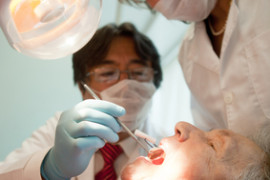The connection between periodontal disease and rheumatoid arthritis has become a hot topic among oral-systemic health researchers. And yet, while there is clearly a connection between the two conditions, research has yet to make clear exactly how they may influence each other.
Much research surrounds the inflammatory nature of both diseases and the impact of specific periodontal bacteria—namely Porphyromonas gingivalis—traveling to the joints. While inconclusive in proving causality, this research has rheumatologists recommending that their patients with RA be evaluated and treated for periodontal disease.
In a recent study published in the Journal of Immunology, however, researchers sought to determine how periodontal pathogens other than P. gingivalis affect an experimental model of rheumatoid arthritis:
Previous studies on the relationship between RA and PD have primarily focused on P. gingivalis, probably because of its ability to citrullinate proteins and generate potential autoantigens. However, P. gingivalis possesses several other virulence factors such as LPS, fimbriae hemagglutinin, and gingipains as well, which may directly contribute to its pathogenicity regardless of citrullination. It is also important to consider that PD is in fact a polymicrobial disease. P. nigrescens is one of the species frequently found in subgingival plaque of aggressive periodontitis mostly at bleeding sites. Importantly, elevated levels of P. nigrescens DNA fragments have been found in RA serum and synovial fluid as well as in subgingival dental plaque of RA patients with periodontitis. Therefore, studying the role of periodontal pathogens other than P. gingivalis is crucial for a better understanding of the interaction between the two diseases.
They found that periodontitis induced by P. gingivalis and P. nigrescens increases the severity of experimental arthritis, worsening bone erosion in arthritic joints.
However, a single dose of the bacteria was not enough to influence the arthritis, leading researchers to conclude that periodontal disease and RA are not merely connected by the presence of bacteria, but by the activation of certain T-cells that promote arthritic bone erosion.
The relationship between gum disease and rheumatoid arthritis has long been discussed as both potentially etiological and causal, as the two conditions share common risk factors and immunological processes. Oral infection results in an inflammatory response, the by-products of which can spread throughout the body to influence all inflammatory diseases found in humans. This appears to be particularly true with rheumatoid arthritis.
Studies have shown that periodontal therapy can be beneficial to patients with RA, even if they are already in remission. When we view oral health as a major pillar of overall health, it can play a large part in the prevention and management of chronic conditions like rheumatoid arthritis.



